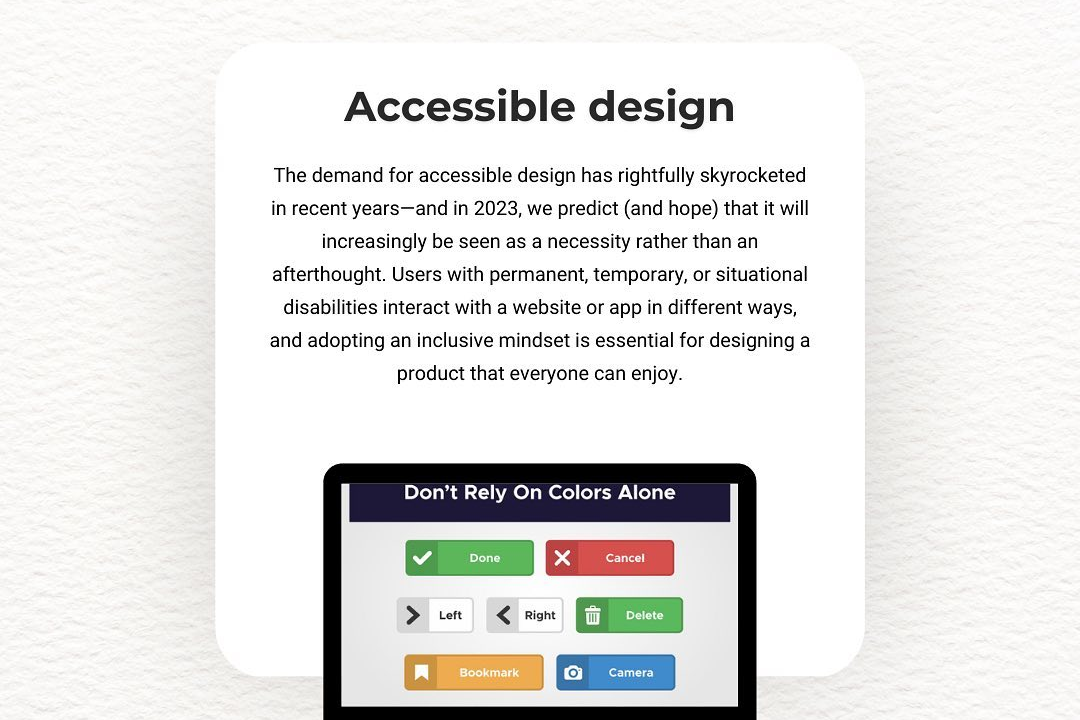selenium training in chennai BlogSpot
Selenium training in Chennai is designed to equip individuals with essential skills in automation te
selenium training in chennai BlogSpot
Selenium training in Chennai offers a valuable opportunity for aspiring software testers and automation engineers to gain proficiency in one of the most widely-used testing frameworks in the industry. With a focus on practical, hands-on learning, the program empowers participants to understand key concepts like test case development, Selenium WebDriver, and integration with tools such as TestNG and JUnit. As the demand for automated testing continues to rise in today’s fast-paced software development environments, acquiring skills in Selenium not only enhances job readiness but also opens doors to career advancement opportunities in quality assurance and software development roles. By enrolling in this training, individuals position themselves at the forefront of automation technology, crucial for ensuring the delivery of high-quality software products.
To Download Our Brochure: https://www.justacademy.co/download-brochure-for-free
Message us for more information: +91 9987184296
Selenium training in Chennai offers a valuable opportunity for aspiring software testers and automation engineers to gain proficiency in one of the most widely used testing frameworks in the industry. With a focus on practical, hands on learning, the program empowers participants to understand key concepts like test case development, Selenium WebDriver, and integration with tools such as TestNG and JUnit. As the demand for automated testing continues to rise in today’s fast paced software development environments, acquiring skills in Selenium not only enhances job readiness but also opens doors to career advancement opportunities in quality assurance and software development roles. By enrolling in this training, individuals position themselves at the forefront of automation technology, crucial for ensuring the delivery of high quality software products.
Course Overview
The “Selenium Training in Chennai” program is designed to equip participants with comprehensive knowledge and hands-on experience in using Selenium, a leading automation testing tool. This course covers fundamental concepts such as the architecture of Selenium, WebDriver, and Selenium IDE, as well as advanced topics including test automation frameworks, integration with tools like TestNG and Maven, and Continuous Integration/Continuous Deployment (CI/CD) practices. Participants will engage in real-time projects that simulate real-world testing scenarios, enhancing their problem-solving skills and technical proficiency. Upon completion, attendees will be well-prepared to take on roles in quality assurance, software testing, and automation engineering, making this training an invaluable asset for those looking to advance their careers in the software industry.
Course Description
The “Selenium Training in Chennai” course offered by JustAcademy is designed to provide participants with in-depth knowledge and practical skills in the realm of test automation using Selenium. This comprehensive training covers the fundamentals of Selenium, including its architecture, Selenium WebDriver, and Selenium IDE, while also delving into advanced concepts such as creating robust test automation frameworks, integrating testing processes with tools like TestNG and Maven, and implementing best practices in Continuous Integration/Continuous Deployment (CI/CD). Participants will engage in real-time projects that mimic industry-relevant testing scenarios, ensuring they gain hands-on experience that is crucial for successful careers in software testing and quality assurance. Whether you are a beginner looking to break into the field or an experienced tester aiming to sharpen your skills, this course provides valuable insights and practical knowledge that will empower you to excel in the fast-paced world of software development and testing.
Key Features
1 - Comprehensive Tool Coverage: Provides hands-on training with a range of industry-standard testing tools, including Selenium, JIRA, LoadRunner, and TestRail.
2) Practical Exercises: Features real-world exercises and case studies to apply tools in various testing scenarios.
3) Interactive Learning: Includes interactive sessions with industry experts for personalized feedback and guidance.
4) Detailed Tutorials: Offers extensive tutorials and documentation on tool functionalities and best practices.
5) Advanced Techniques: Covers both fundamental and advanced techniques for using testing tools effectively.
6) Data Visualization: Integrates tools for visualizing test metrics and results, enhancing data interpretation and decision-making.
7) Tool Integration: Teaches how to integrate testing tools into the software development lifecycle for streamlined workflows.
8) Project-Based Learning: Focuses on project-based learning to build practical skills and create a portfolio of completed tasks.
9) Career Support: Provides resources and support for applying learned skills to real-world job scenarios, including resume building and interview preparation.
10) Up-to-Date Content: Ensures that course materials reflect the latest industry standards and tool updates.
Benefits of taking our course
Functional Tools
1 - Selenium WebDriver: Selenium WebDriver is the core component of the Selenium suite that provides a programming interface for automating web application testing. It allows testers to write scripts in various programming languages, including Java, Python, and C#, making it versatile for developers familiar with these languages. With its ability to interact with web elements like buttons, text fields, and links, WebDriver provides robust control over a browser's behavior. Testers can create efficient test cases that simulate user interactions, ensuring that applications function correctly across different browsers and platforms.
2) Selenium IDE: Selenium Integrated Development Environment (IDE) is a user friendly tool for recording and playing back tests in web browsers such as Firefox and Chrome. It provides an intuitive interface that allows testers to create simple test scripts without extensive programming knowledge. Users can record their actions, which are then converted into reproducible test cases. IDE is particularly useful for beginners who want to get acquainted with automated testing concepts and create quick prototypes of their tests before moving into more complex implementations using WebDriver.
3) TestNG: TestNG is a powerful testing framework inspired by JUnit, designed to streamline the testing process while providing advanced features. It supports annotations for organizational clarity and allows the grouping of test cases, making it easier to manage large test suites. TestNG supports parallel testing, enabling testers to run multiple tests simultaneously, which significantly reduces overall testing time. Its built in reporting feature provides comprehensive insights into test execution results, aiding in the quick identification of issues and defects.
4) Apache Maven: Apache Maven is a build automation tool that provides a comprehensive framework for managing project dependencies and build lifecycles in Java projects. Within Selenium training, Maven is essential for managing libraries and plugins, simplifying the setup process for test environments. By defining dependencies in a single configuration file (pom.xml), testers can ensure that all required libraries are automatically downloaded and updated, leading to a more streamlined project setup. This tool enhances collaboration among team members by standardizing the development environment across different machines.
5) JUnit: JUnit is a widely used framework for unit testing in Java applications, and it plays a significant role in Selenium automation by facilitating test case management. It offers a straightforward approach to writing tests, with annotations that help organize and manage test execution. Testers can utilize JUnit to validate individual components of an application before integrating them into larger test suites. Its integration with build tools like Maven and CI/CD pipelines makes it an invaluable asset in modern DevOps practices while ensuring continuous testing and quality assurance.
6) Cucumber: Cucumber is a testing framework that uses Behavior Driven Development (BDD) principles to define test scenarios in plain language. This enables collaboration between technical and non technical team members, resulting in a clearer understanding of expectations and requirements. In the context of the Selenium course, Cucumber allows students to write test cases in a more accessible format, facilitating communication among stakeholders. By integrating Cucumber with Selenium, testers can automate acceptance tests, ensuring that applications meet business requirements before going live. This enhances the overall quality of software and empowers teams to deliver value to their clients effectively.
Certainly! Here are additional key points about each tool and concept essential for a comprehensive understanding of automated testing in Selenium and its ecosystem.
Advanced Points about Selenium Components
- Selenium Grid: Selenium Grid is a powerful feature that allows testers to run tests on multiple machines and browsers simultaneously. This capability is invaluable for cross browser testing, enabling the identification of browser specific issues efficiently. By configuring a hub and several nodes, testers can distribute their test execution across various environments, optimizing time and resources while increasing coverage.
- 2. Page Object Model (POM): The Page Object Model is a design pattern that enhances test maintenance and reduces code duplication. In this model, each web page of the application is represented by a class, containing relevant methods and properties that interact with web elements. By encapsulating page specific logic, POM simplifies updating tests when the UI changes, ultimately leading to more stable and reusable test scripts.
- 3. Implicit and Explicit Waits: Managing synchronization is critical in automated testing. Selenium provides two primary types of waits: implicit and explicit waits. Implicit waits set a global timeout for locating elements, while explicit waits allow specifying conditions that must be met before proceeding with the test. Understanding how to implement these waits ensures that scripts run smoothly, reducing issues caused by loading times, especially in dynamic web applications.
- 4. Headless Browsers: Headless browser testing involves running tests on browsers without a graphical user interface (GUI). Tools like Chrome Headless and PhantomJS allow for faster test execution since there is no rendering of the UI. This is particularly useful in CI/CD pipelines, where rapid feedback is essential without needing visual confirmation of test outcomes.
- 5. Dynamic Web Elements Handling: Many modern web applications employ dynamic elements that can change or load unpredictably. Testers must learn how to handle such elements effectively by using strategies like waiting for elements to be clickable or present and utilizing advanced locators such as XPath or CSS selectors to ensure robust and reliable tests.
- 6. Logging and Reporting: Implementing logging frameworks (e.g., Log4j) and advanced reporting tools (e.g., Allure, ExtentReports) is crucial for tracking test execution and debugging failures. Effective logging provides insights into test execution flow, making it easier to identify where issues arise and providing context in reports for stakeholders.
- 7. Continuous Integration and Continuous Deployment (CI/CD): Integrating Selenium tests into CI/CD pipelines using tools like Jenkins, GitLab CI, or Travis CI ensures that tests are executed automatically whenever code changes occur. This practice fosters a DevOps culture, enabling teams to catch defects early and deliver high quality software more rapidly.
- 8. Cross Platform Testing: Beyond traditional browsers, Selenium can be integrated with tools like Appium for mobile application testing, enabling testers to write tests for both web and mobile platforms using the same framework. Understanding how to leverage these tools expands a tester’s capability to ensure a consistent user experience across devices.
- 9. Parameterization with Data Driven Testing: Tools like TestNG and Cucumber support data driven testing, which allows you to run the same test with different data sets. This approach enhances test coverage, reduces redundancy, and aids in validating multiple scenarios without separate test scripts.
- 10. Security Testing Integration: Automated testing can be integrated with security testing tools (e.g., OWASP ZAP) to identify vulnerabilities within web applications during the testing phase. This ensures that security considerations are systematically addressed as part of the testing lifecycle.
Conclusion
By mastering these advanced concepts and tools, testers can enhance the effectiveness of their Selenium automation efforts, leading to higher software quality and more efficient testing processes. The comprehensive understanding of these components empowers teams at JustAcademy to deliver precise, robust, and scalable test solutions in alignment with industry standards.
Browse our course links : https://www.justacademy.co/all-courses
To Join our FREE DEMO Session:
This information is sourced from JustAcademy
Contact Info:
Roshan Chaturvedi
Message us on Whatsapp: +91 9987184296
Email id: info@justacademy.co
Qlik View Power Bi Job Gurantee Training
Can Learn Selenium Directly Without Knowledge Of Manual Testing












